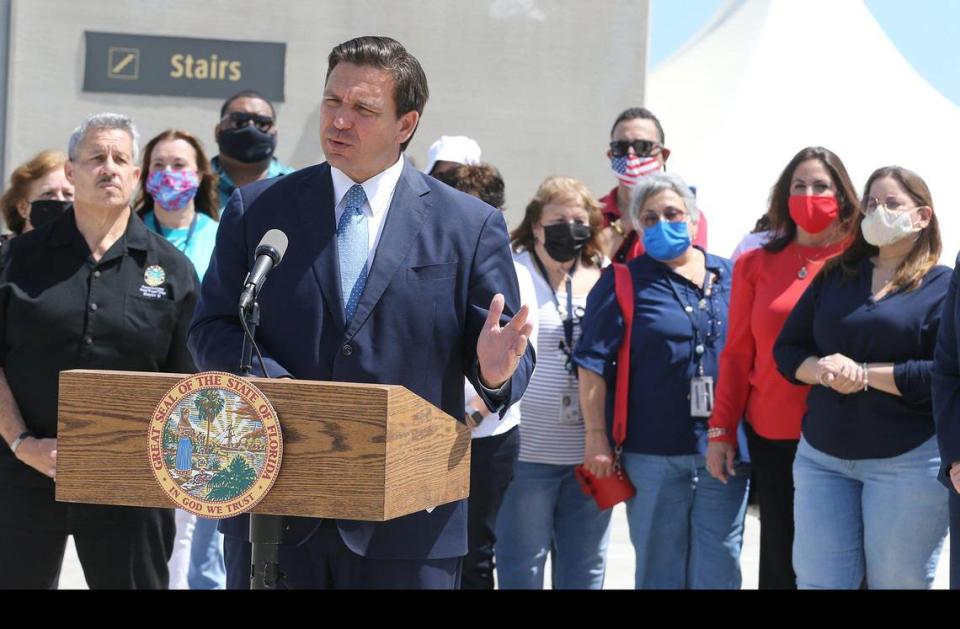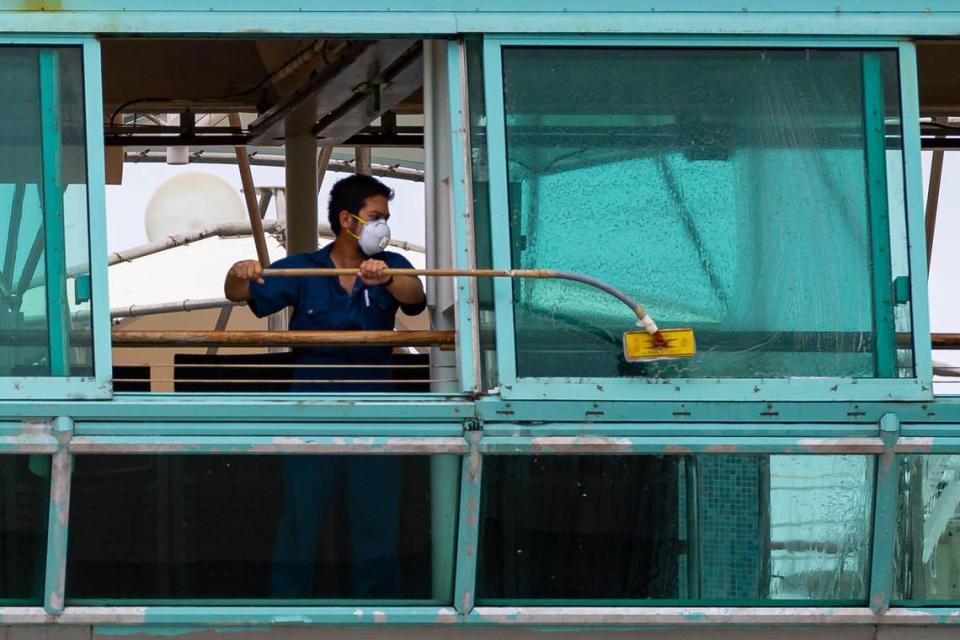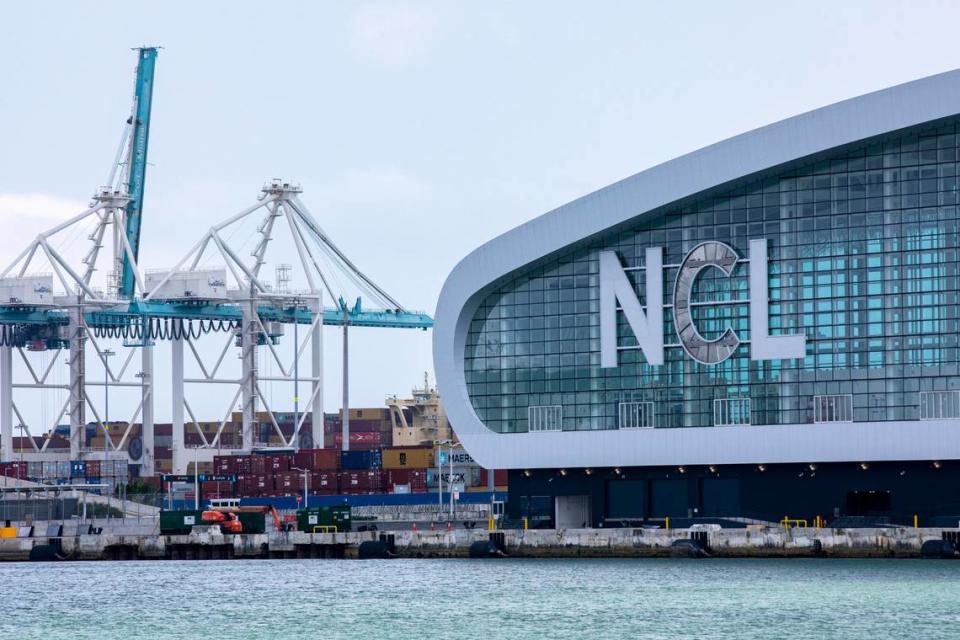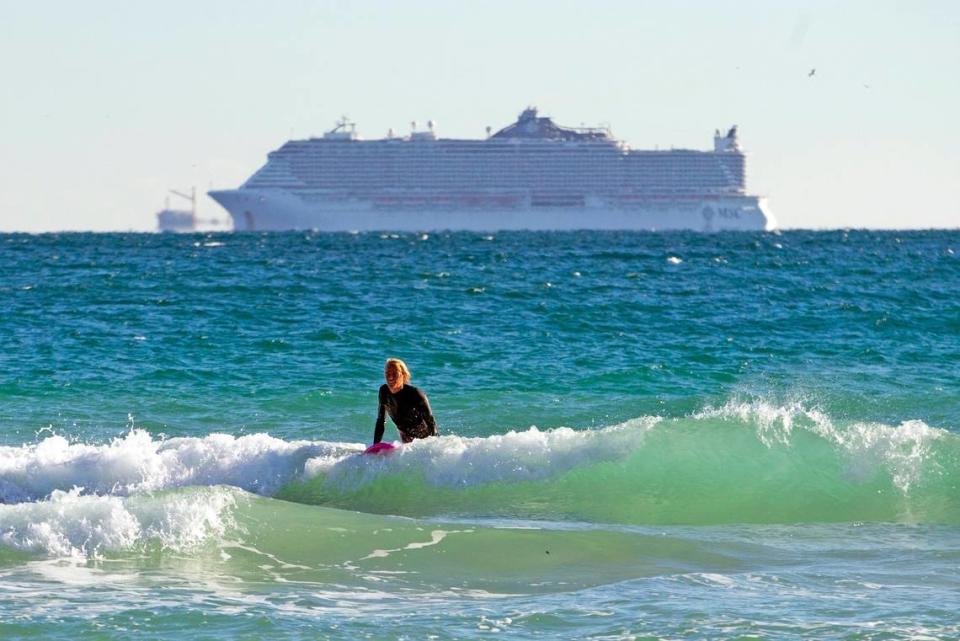‘What is the acceptable risk?’: Federal judge grills CDC on its cruise safety rules
Does the Centers for Disease Control and Prevention have the authority to require cruise companies in Florida to take specific measures to prevent the spread of disease? And are its current mandates an unfair burden on the industry?
Those questions were at the heart of a three-and-a-half hour hearing in federal court Thursday in Tampa over the state of Florida’s request that the court invalidate the CDC’s rules for cruises while a lawsuit against the agency proceeds.
It was the second hearing on the request. As with the initial hearing, held on May 12, U.S. Middle District of Florida Judge Steven D. Merryday issued no immediate ruling but said he would have a decision “soon.”
In the proceeding, Merryday waded into philosophical issues, such as what level of risk is acceptable to cruise passengers and who should make that decision. He also asked the federal lawyers if the government has evidence that masks are effective at limiting the spread of the coronavirus.
The underlying lawsuit, filed against the CDC by Gov. Ron DeSantis in April, says the agency’s “conditional sail order” is unfairly targeting the cruise industry with over-burdensome safety rules, and preventing Florida from collecting important tax revenue. The current request calls for immediate action until the lawsuit can be heard.

In reviewing the issues Thursday, Merryday asked “What is the acceptable risk for traveling on a cruise vessel and who decides to take that risk or if it’s too much?” He noted that a passenger who contracts the coronavirus aboard a cruise ship has made “a private decision with a public consequence.”
He also grilled the CDC’s lawyer about the source of their powers to regulate cruises and repeatedly asked for the agency to define how bad the coronavirus spread needs to be onboard a ship before the agency can intervene.
CDC requirements state that in order to restart cruise ship operations, 95 percent of cruise passengers must be vaccinated, or each ship must undergo a two-day test cruise first to make sure the disease doesn’t spread unchecked.
James Percival, who represented the state of Florida, said that the 95% threshold unfairly targets cruises, since President Joe Biden’s goal is 70% of all adults be vaccinated, and other states have started to reopen at even lower vaccination rates.
But Amy Powell, who represented the Centers for Disease Control, said cruises are much more dangerous than other settings.
“Several thousand people are in close quarters for days and weeks,” she said. “We have data showing the transmission rate aboard cruise ships is five times higher than elsewhere.”

The judge’s questions hinted at skepticism. The federal government has used past cruise outbreaks, such as on the Diamond Princess, to help craft the rules and understand how the virus spreads onboard. Of the thousands of passengers on that ship, at least nine died, according to previous CDC statements, though Powell said the true number was higher.
“On a vessel without precautions designed for COVID, without knowledge of COVID and without therapeutics ... two-tenths of one percent of passengers died?” Merryday asked.
He also said the CDC’s own research suggested masks’ effect on tamping down the spread was “barely statistically significant” in one community where the agency had done a study.
“Where does this mask efficacy theory come from?” Merryday said. “We’ve had masking and social distancing for a long time and we had a pandemic in the middle of it.”
Powell responded that neither masks nor social distancing are cure-alls, but that they reduced the number of people who died.
“What you can do is make the best scientific decision you can with the evidence available. That’s the CDC’s job,” she said. “We don’t expect the risk to be zero, there will be risk on every ship. ... but we’re still in the midst of a still-deadly pandemic.”

When pressed on what level of transmission would require agency action, Powell said that the agency has broad authority from Congress to prevent the interstate and international transmission of disease, and there’s a need for “enforceable public health measures.” Legally, the agency has the power to try to reduce transmission to zero, even if that may not be practical in the coronavirus’ immediate future, she said.
Percival, for the state of Florida, pounced on that statement.
If that’s true, “it’s unclear what they cannot do,” he said. “They can bar your doors ... That is an astronomical power.”
Percival also argued that the 95% threshold discriminates against families with children, since kids under 12 are not eligible to be vaccinated, therefore capping the number of young kids allowed onboard at a number below what is normal for Disney Cruise Line and other child-oriented brands. Cruise companies can avoid that threshold by doing a test cruise first, but the state argued the cost of doing a test cruise is too burdensome.
Listen to today's top stories from the Miami Herald:
Subscribe: Apple Podcasts | Spotify | Amazon Alexa | Google Assistant | More options
He also said the CDC was overreaching by portraying itself as the single protector against catastrophe.
“We’ve got our own house in order and we can decide what’s best for Florida,” he said. “We don’t need the CDC to tell us that.”
But Powell countered that the federal intervention compensates for an imbalance of information that favors cruise companies over passengers.

“Informed consumers, no matter how well-informed, don’t have access” to detailed data of disease spread nor do they know the full extent of the actions being taken by cruise companies, she said. “These are minimum public safety standards.”
The hearing ended with the two parties returning to court-ordered mediation — though DeSantis had previously said in a news release that talks had reached an “impasse.” Earlier in the hearing, Judge Merryday scolded the state for those statements, saying they were both a breach of confidentiality and inaccurate, since the mediator is the only one with the legal authority to declare an impasse.
“I’m not faulting the governor,” he said, adding that the release probably didn’t reach his desk. “(But) you need to inform everyone in your chain of communication that if there’s a repeat of this, I’ll investigate.”
Cruises are scheduled to start back up on June 26 — evidence that the requirements aren’t prohibiting the companies from proceeding, according to the CDC lawyer.
But Port Canaveral CEO John Murray, who attended Thursday’s hearing, said afterward that the federal rules are “way overly burdensome,” though he said no cruise companies joined DeSantis’ lawsuit because the industry still has to work with the CDC long into the future.
He did say, however, that unvaccinated passengers, who create extra costs for cruise lines because of extra testing, should have to foot the bill. That could encourage more people to get shots before getting onboard. He declined to weigh in on the new Florida law preventing cruise companies from requiring passengers to provide proof they’ve been vaccinated prior to boarding.
“It’s very important to get a decision here to get the industry moving forward again,” he said. “The challenge is this decision should’ve been taken months ago.”
Herald staff writer Taylor Dolven reported from Miami; Emily Mahoney, a Tampa Bay Times reporter, from Tampa.

